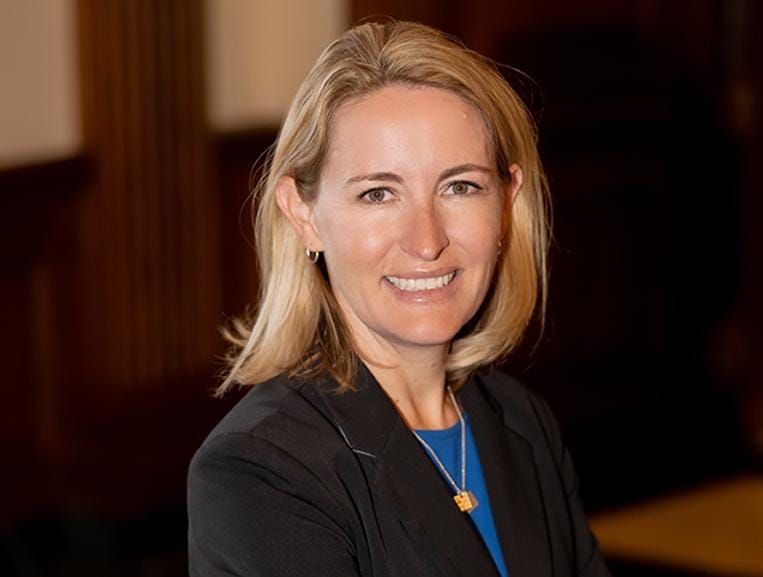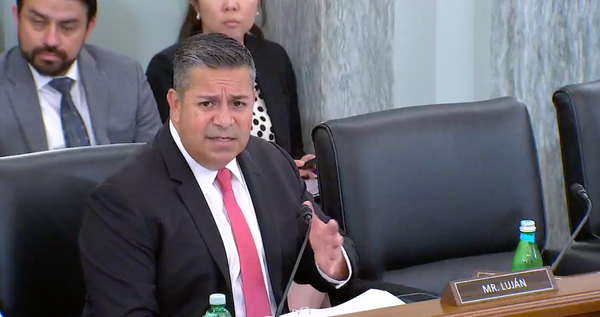Opening Briefs Challenge FCC's Digital Discrimination Rules in Eighth Circuit Court Case
Landlords, broadband contractors, and housing sector groups may have their arguments considered in a supplement submitted Monday.

WASHINGTON, April 23, 2024 – Opening briefs submitted Monday in a court case challenging federal digital discrimination rules sparked debate over the regulatory reach of the Federal Communications Commission.
In a consolidated petition, twenty industry groups put forward arguments asserting that the commission's digital discrimination order marks a significant expansion of its jurisdiction to include industries previously untouched by FCC regulations.
The FCC’s digital discrimination order being challenged in the Eighth Circuit Court of Appeals was adopted by the commission in November in an effort to prevent disparate broadband access based on race, income, and other demographic characteristics.
The “disparate impact” standard adopted by the rules for the purpose of identifying such discrimination applies not only to broadband providers, but also to other entities that facilitate and affect consumer access to broadband service.
In their joint submission to the court, the petitioners argue that the FCC’s rulemaking authority should be restricted to telecommunications and internet service providers, maintaining that non-ISP entities impacted by the order “have little to no control over whether or how providers offer broadband.”
To fortify their position, a motion was filed to supplement the record on behalf of key petitioners, including the U.S. Chamber of Commerce, Texas Association of Business, and Longview Chamber of Commerce.
This supplement introduces perspectives from organizations representing landlords and companies involved in constructing broadband and electrical infrastructure. These entities are requesting that the court set aside the FCC’s digital discrimination rules on the grounds the rules would necessitate the immediate expenditure of resources to assess business practices for potential disparate impact and other associated liabilities, directly impacting their sectors and members.

These member organizations say they have already begun to incur non-recoverable costs as a result of the rules, and they assert that the implementation of the FCC’s order could result in potential changes or abandonment of business practices, along with exposure to penalties like monetary forfeitures.
Should the court accept the supplement, it would integrate the perspectives of additional organizations, including the National Multifamily Housing Council, Continental Properties Company, and the Power and Communications Contractors Association, into the court's official record.
The U.S. Chamber of Commerce’s Technology Engagement Center and ACA Connects are also featured in the supplement, advocating for broadband providers. They argue that the rule would “open up virtually all aspects of these members' business practices” to claims of disparate impact, including prices, speeds, network reliability, customer service, language options, credit checks, advertising, and much more.
Several of the largest ISPs, including AT&T, Charter Communications, Comcast, T-Mobile, and Verizon, are members of the U.S.Chamber’s policy groups. The U.S. Chamber first brought the lawsuit to the Fifth Circuit Court of Appeals in January, before it was consolidated with two other lawsuits, brought forth by cable and wireless trade associations, into a single case before the Eighth Circuit.
In the brief accepted on Tuesday, petitioners invoked the “major questions doctrine” to support their argument. The essence of the doctrine is that significant policy decisions or major regulatory changes should be made by Congress.
However, since the FCC was expressly authorized by Congress to address digital discrimination of access under Section 60506 of the Infrastructure Investment and Jobs Act, the major questions doctrine may not apply in context.
While the FCC typically has authority over telecommunications services and related industries, the extent of its regulatory power over entities beyond ISPs will likely be subject to legal interpretation and challenges.

Three public interest groups intervening on the side of the FCC’s decision also filed opening briefs with the Eighth Circuit on Monday; however, their arguments remain confidential pending review and public disclosure. Media Alliance, Great Public Schools Now, and the Benton Institute for Broadband and Society are arguing in defense of the rules.
Broadband Breakfast is actively monitoring the case and will provide details on these arguments once they are officially accepted by the court, expected after a refiling on Tuesday due to formatting issues.
After the court accepts all the opening briefs, the deadline for amicus briefs from advocacy groups, organizations, or individuals not directly involved in the case is set for next Monday. This will kick off a months-long process involving analyzing the legal arguments and evidence presented by each side, including a consolidated brief from the FCC due in late June.
Although industry groups pushed for an expedited briefing schedule in an effort to wrap up the case before the rules entered enforcement, the court tentatively scheduled oral arguments for either September 25 or September 26 at 2:00 p.m. in St. Louis, Missouri.
This puts the arguments days after the FCC can begin to open investigations into potential violations of the rules, which went into effect on March 22 but do not enter enforcement until September 22.











